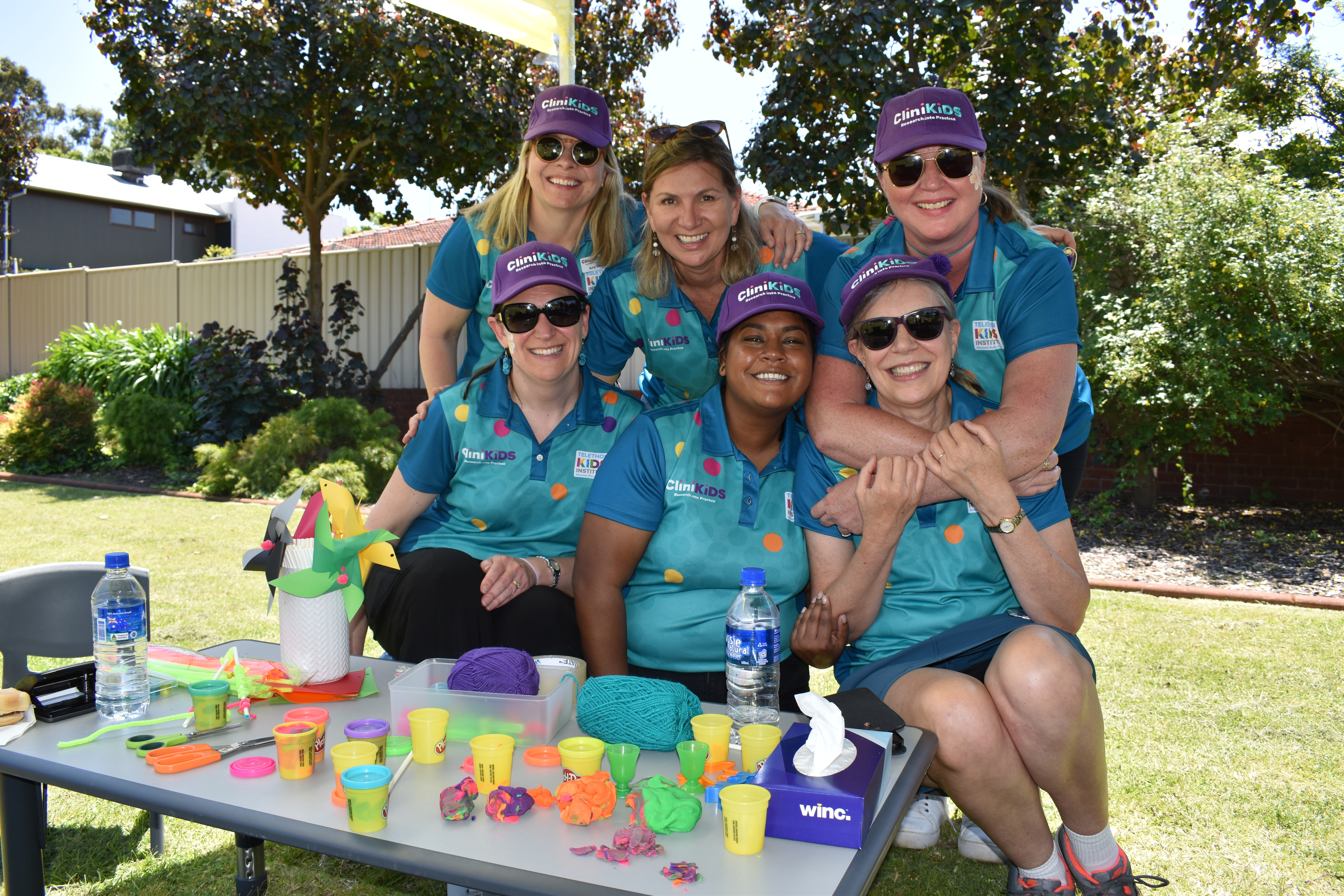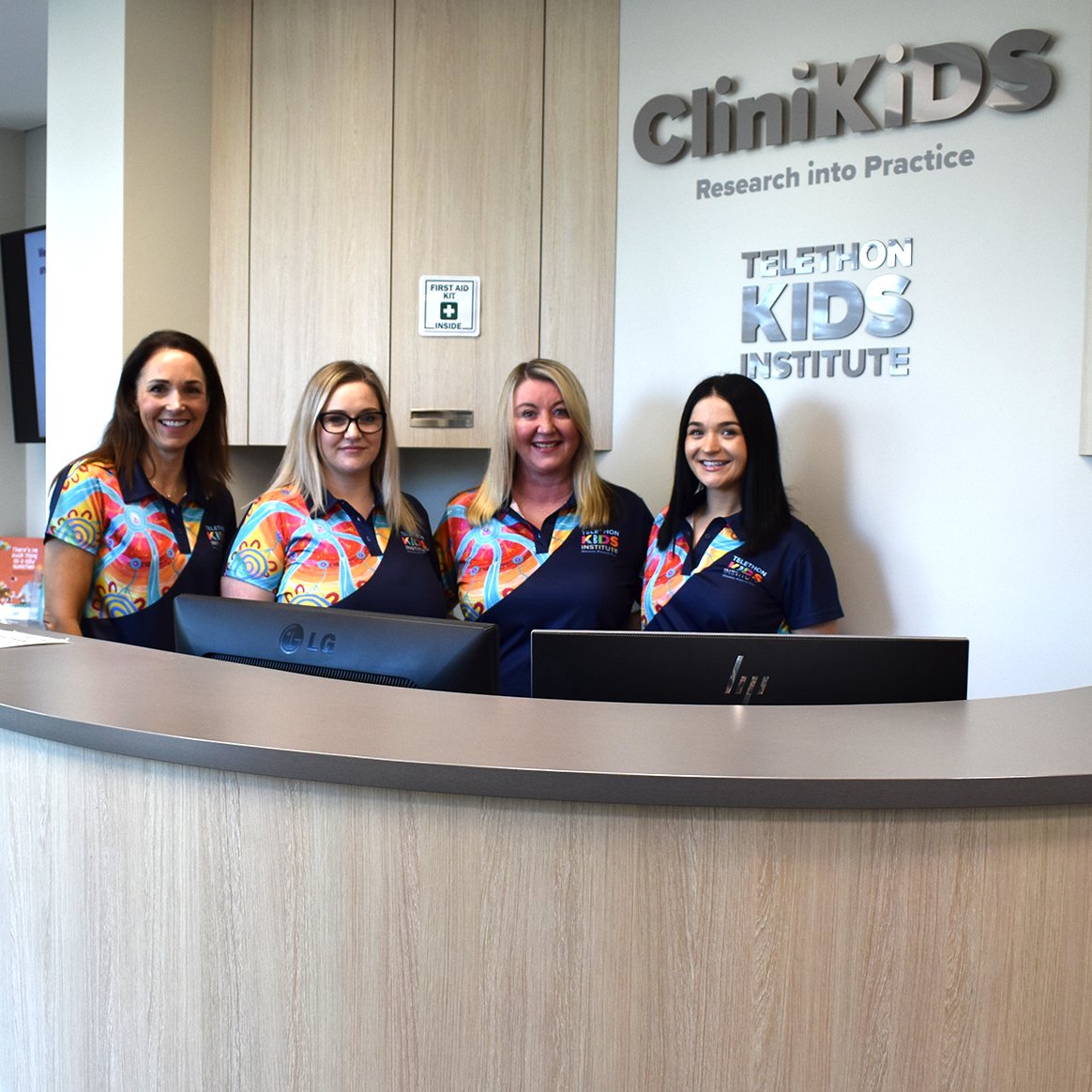Search

News & Events
Frangipani Family Day a huge success!CliniKids held its inaugural Frangipani Family Day recently – an event organised to honour the wonderful contribution of its much loved and dearly missed colleague, the late Kate Sorensen.

News & Events
Meet the Client Support TeamThe Client Support Team at CliniKids has some new faces! Nicki and Amy join our lovely Tracy.

News & Events
Welcome to the team Leah!Meet Leah – the latest addition to the CliniKids team. We asked Leah, our new Operations Manager, a couple of questions to get to know her.
Research
Eye Gaze in Autism Spectrum Disorder: A Review of Neural Evidence for the Eye Avoidance HypothesisReduced eye contact early in life may play a role in the developmental pathways that culminate in a diagnosis of autism spectrum disorder. However, there are contradictory theories regarding the neural mechanisms involved. According to the amygdala theory of autism, reduced eye contact results from a hypoactive amygdala that fails to flag eyes as salient. However, the eye avoidance hypothesis proposes the opposite-that amygdala hyperactivity causes eye avoidance. This review evaluated studies that measured the relationship between eye gaze and activity in the 'social brain' when viewing facial stimuli.
Research
An investigation of a novel broad autism phenotype: increased facial masculinity among parents of children on the autism spectrumThe broad autism phenotype commonly refers to sub-clinical levels of autistic-like behaviour and cognition presented in biological relatives of autistic people. In a recent study, we reported findings suggesting that the broad autism phenotype may also be expressed in facial morphology, specifically increased facial masculinity.
Research
Age of Diagnosis for Co-occurring Autism and Attention Deficit Hyperactivity Disorder During Childhood and Adolescence: a Systematic ReviewEarly identification and intervention are recognised as important elements of the clinical pathway for autism spectrum disorder (ASD). Children with ASD and attention deficit hyperactivity disorder (ADHD) may be diagnosed at a different age than children who only have one of these diagnoses.
Research
Effect of Preemptive Intervention on Developmental Outcomes Among Infants Showing Early Signs of Autism: A Randomized Clinical Trial of Outcomes to DiagnosisIntervention for individuals with autism spectrum disorder (ASD) typically commences after diagnosis. No trial of an intervention administered to infants before diagnosis has shown an effect on diagnostic outcomes to date.
Research
Delayed cortical processing of auditory stimuli in children with autism spectrum disorder: A meta-analysis of electrophysiological studiesSeveral researchers have hypothesised that individuals with Autism Spectrum Disorder (ASD) show encoding delays in their obligatory event-related potentials (ERPs)/ event-related fields (ERFs) for low-level auditory information compared to neurotypical (NT) samples. However, empirical research has yielded varied findings, such as low-level auditory processing in ASD samples being unimpaired, superior, or impaired compared to NT samples. Diverse outcomes have also been reported for studies investigating ASD-NT differences in functional lateralisation of delays.
Research
Maternal immune-related conditions during pregnancy may be a risk factor for neuropsychiatric problems in offspring throughout childhood and adolescenceEmerging research suggests that maternal immune activation (MIA) may be associated with an increased risk of adverse neurodevelopmental and mental health outcomes in offspring. Using data from the Raine Study, we investigated whether MIA during pregnancy was associated with increased behavioral and emotional problems in offspring longitudinally across development.
Research
Evidence that infant and early childhood developmental impairments are associated with hallucinatory experiences: Results from a large, population-based cohort studyCognitive and motor dysfunction are hallmark features of the psychosis continuum, and have been detected during late childhood and adolescence in youth who report psychotic experiences (PE). However, previous investigations have not explored infancy and early childhood development.
